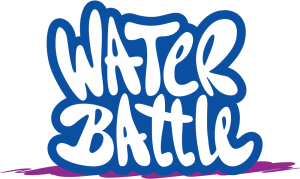This article will be the first of our literature review series on scientific projects conducted on serious gaming/gamification and environmental sustainability. The goal is to illustrate and establish their role as a tool to promote environmental sustainability and cause behavioural change.
There is no dispute that changing our sustainability behaviours is the long term solution to climate change. This solution will, for instance, reduce household energy consumption and ultimately cause reductions in carbon emissions. The question then is, why do only a few people adopt sustainable behaviours?
According to Roser-Renouf and colleagues (2016), 45% of Americans were alarmed whenever global warming was discussed, whilst 28 % were either disengaged, doubtful, or dismissive. Note that those that are alarmed do not necessarily practice environmentally-friendly habits.
A number of reasons account for the disengagement, dismissiveness, and doubts.
- First, matters of climate change are presented with statistical figures that are difficult to follow and comprehend. This observation has also been made by Kollmus and Agyeman (2002).
In essence, the general public is unable to appreciate the urgency for calls by experts to pay attention to rapid climate change. This is because of how available data is presented.
- Secondly, most people have the perception that their role in the campaign against climate change is insignificant.
This perception was also captured in 2011 by Gifford Robert in his work titled “The dragons of inaction: Psychological barriers that limit climate change mitigation and adaptation”.
Most people feel the problem is too huge and complicated. Therefore, they assume their contribution will not make any difference. Hence, there is no motivation to change behaviour.
- Another pertinent reason why few people adopt sustainable behaviours is that, over the years, many completed and ongoing sustainability projects, campaigns, and interventions place little emphasis on the relevance and essence of monitoring and measuring behavioural change.
Usually, these projects teach people the damage climate change is causing, what everybody needs to be doing, and how beneficial proposed measures will be.
Although awareness creation is laudable, it has been empirically established that it does not necessarily result in a desired behavioural change (Abrahamse and colleagues, 2005)
Considering the above factors, some behavioural scientists are exploring serious gaming as a tool to help people break hard-wired habits and adopt new ones.
In the current piece, we examine the work of Michael Ro, Markus Brauer, Kathy Kuntz, Raj Shukla, and Ingo Bensch (2017). The group, believes serious gaming/gamification should be incorporated in behavioural change interventions.
For more on what serious gaming is, check out this article; what are serious games?
Based on this conviction, Michael Ro and his colleagues designed and implemented a game called the ‘cool choices game’, which aims to reduce household greenhouse gas emissions.
For more information on the ‘cool choices game’, visit coolchoices.com
In their publication titled, Making Cool Choices for sustainability: Testing the effectiveness of a game-based approach to promoting pro-environmental behaviors, they conducted two studies to investigate the effectiveness of their game.
Study 1
Aim: To check if the game increased sustainable behaviours among players. In essence, the study also wanted to know whether the game could reliably help players reduce their energy consumption.
Participants / Method: there were 220 players, who were all employees of a construction firm based in their 5 Wisconsin regional offices. The electricity consumption of the players was compared to the average resident in the same region.
Additionally, follow-up interviews were conducted with some of the players after game completion to ascertain how long newly acquired sustainable behaviours were or have been maintained.
Results and conclusions: First, the players’ baseline rates of energy consumption were established and classified as low, average, and high. Players with an average baseline consumption rate were reported to use 26 kWh/month less energy compared to the average resident in the same area. In other words, these players saved 4% more electricity than the average resident.
The study also reported that the high average consumers were also the biggest energy savers when the game was over.
The authors cautiously concluded that there was a sustained behavioural change. This exercised caution was because of the small sample size used in the analysis.
Study 2
Aim: To get a deeper understanding of the long-lasting effect of the game. Notice that in study 1 there was no reliable conclusion on this subject due to the issue of sample size.
Participants / Method: There were 1909 participants, who were all employees from three different companies. These players provided answers to questionnaires a week before the start of the game and a week after the conclusion of the game.
Results and conclusions: Out of the 1909 participants, 643 responded to the item, “since using cool choices, I’m more likely to turn off the lights in the rooms at work that aren’t being used”. In the post-test questionnaire, either ‘agreed’ or ‘strongly agreed’.
In a similar fashion, 69 % of 646 respondents admitted that they were more likely to turn off unused office equipment. There were other observations made pointing to the sustained effect of the game.
So, the two studies by Michael Ro and his colleagues try to show how serious gaming potential serious gaming, when properly harnessed can lead to behavioural change in energy consumption.
Grendel Games’ take on the two studies
Michael Ro and his colleagues definitely made the right decision to scientifically validate their game. Generally, the studies were well thought through. Considering how cumbersome it can get to recruit participants for studies such as these, the sample size reported is commendable.
One thing the studies failed to directly address was how the game evolves over time to sustain behavioural change. This issue was not addressed possibly because it was not the focus of their studies. The game developers probably already have a solution to this issue.
We point this out because behavioural change requires constant engagement and so any proposed solution should have a long life span to achieve a sustained change.
All in all, we say kudos to Michael Ro and the team for pulling this off.
The future of serious gaming and behavioural change in environmental sustainability
Gaming methodologies have been proven to help in skills acquisition and knowledge transfer. Behavioural change is not an exception. In as much as energy conservation is important, water conservation is also needed.
There is a direct correlation between the rate of water and energy demand. The higher the water demand, the higher the energy required, and when water demand reduces, energy is positively affected.
Grendel Games has developed a product that helps households change their water consumption behaviour and eventually save water. Check out the Water Battle fact sheet below:
Water Battle Fact Sheet
Product Background and Goal
The development of Water Battle was completed in 2017. The product aims to change unfavorable water consumption patterns and behavior in households
Product Description
- Water Battle has educational, entertainment, and water-saving features. The entertainment aspect of the product is targeted at children (from 6 to 12).
- As the game is played the product’s educational elements provide the children with new and deep insights into good water conservation habits. These insights spark discussions in the home with parents/guardians.
In effect, the player (child) motivates the entire household to adjust its water consumption habits to access the different levels of the game. Thus, water is eventually saved.
Product Validity
Water Battle has been validated in the Netherlands, together with Vitens water (the biggest water company in the Netherlands). Before the start of the validation, water consumption during peak hours for the participating households was 1.87 times higher than usage during the rest of the day. During validation, the ratio lowered to 1.77. Most importantly, the participating households recorded a 7 percent reduction in water usage over a 3-month period.
- The Game is played on smartphones and tablets. It is available on the Play Store and App Store
- The total number of players (children) was 500 (Males = 224)
- The total number of participating households was 322
- The game duration is infinite. There is a procedural generation of new levels weekly.
- Sustainable handling of water was the main reason households participated in the validation.
- After the validation, 83% of the participants said they have a better understanding of their water consumption.
- More than 80% said they are more aware of water sustainability after participation in Water Battle
- 78% of participants indicated that it is ‘very important’ that water companies stimulate sustainable water consumption.
- Vitens also reported that customers’ willingness to speak positively about their brand increased from 10% to 70% due to Water Battle.
If you already have some ideas or questions, let’s continue the conversation, contact Tim Laning via email / tel: +31681565635 / Linkedin
Main article reviewed
Other references
Global Warming’s Six Americas and the Election, 2016
The dragons of inaction: Psychological barriers that limit climate change mitigation and adaptation.
A review of intervention studies aimed at household energy conservation

